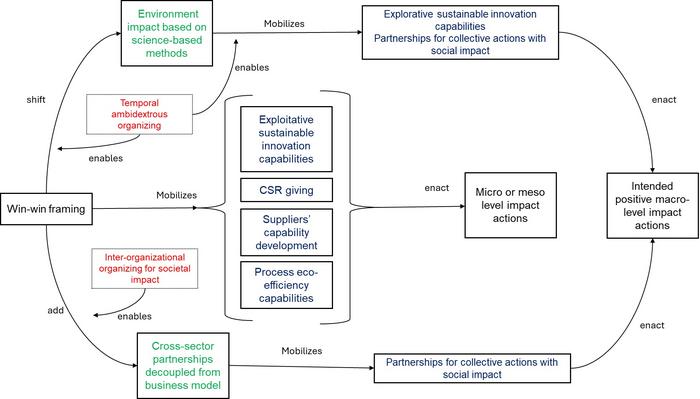The research redefines sustainability by examining how strategic framing can elevate corporate actions to achieve significant macro-level impacts. Moving beyond individual and community-focused efforts, the study highlights broad-scale changes that enhance societal and environmental well-being, including nationwide poverty reduction, environmental improvements, and public health advancements.
Transforming Sustainability Strategies: Ecuadorian Corporations Leading the Way
The Bigger Picture: Shifting from Micro to Macro Impacts
The research redefines sustainability by examining how strategic framing can elevate corporate actions to achieve significant macro-level impacts. Moving beyond individual and community-focused efforts, the study highlights broad-scale changes that enhance societal and environmental well-being, including nationwide poverty reduction, environmental improvements, and public health advancements.
Corporations as Catalysts: A Decade of Sustainable Growth
Ecuadorian corporations have quietly revolutionized sustainability over the past decade. In a country with diverse ecosystems and socio-economic challenges, five pioneering firms in agriculture, manufacturing, and pharma retail have demonstrated that businesses can be catalysts for social and environmental change. These companies have become integral parts of Ecuador’s sustainability narrative, driven by strategic decisions and visionary leadership.
The Power of Strategic Framing
The success of these corporations lies in their strategic framing of sustainability:
-
Science-Based Environmental Solutions: Companies address complex environmental issues using scientific methods, positioning themselves as leaders in innovation and environmental stewardship.
-
Cross-Sector Partnerships: By collaborating with NGOs, government agencies, and local communities, corporations amplify their social impact and drive meaningful change.
These strategies are supported by enabling factors such as balancing short-term and long-term goals (temporal ambidexterity), aligning sustainability goals with organizational values (purpose alignment), and ensuring competent resource allocation.
Aligning Business with Global Goals
This research challenges companies to adopt a holistic, long-term perspective that aligns with global sustainability targets, such as the United Nations’ Sustainable Development Goals (SDGs). Properly framed sustainability strategies can lead to significant macro-level impacts, urging businesses to look beyond short-term gains.
Transformative Corporate Actions: Case Studies
Sustainable Agriculture: An Ecuadorian agricultural firm integrated scientific research into their farming practices, reducing pesticide use, improving soil health, and decreasing greenhouse gas emissions. This science-based approach enhanced both the environment and the firm’s reputation.
Health and Education Initiatives: A manufacturing firm partnered with international NGOs and local health agencies to launch programs in underserved communities, improving public health and educational outcomes. This collaborative effort transformed lives and set a new standard for corporate social responsibility.
Conclusion: A Call for Strategic Framing
The study presents a compelling case for framing sustainability strategies to achieve macro-level impacts. Through Ecuadorian case studies, it offers a replicable framework for other developing nations. It advocates for scientifically grounded, collaborative strategies focused on long-term societal and environmental well-being. By adopting such strategies, corporations can play a pivotal role in shaping a sustainable future for all.
Journal
Business Strategy and the Environment
DOI
10.1002/bse.3794
Method of Research
Case study
Subject of Research
Not applicable
Article Title
Framing sustainability strategies for the enactment of corporate actions with positive macro-level impact: Evidence from a developing country
Article Publication Date
14-May-2024





